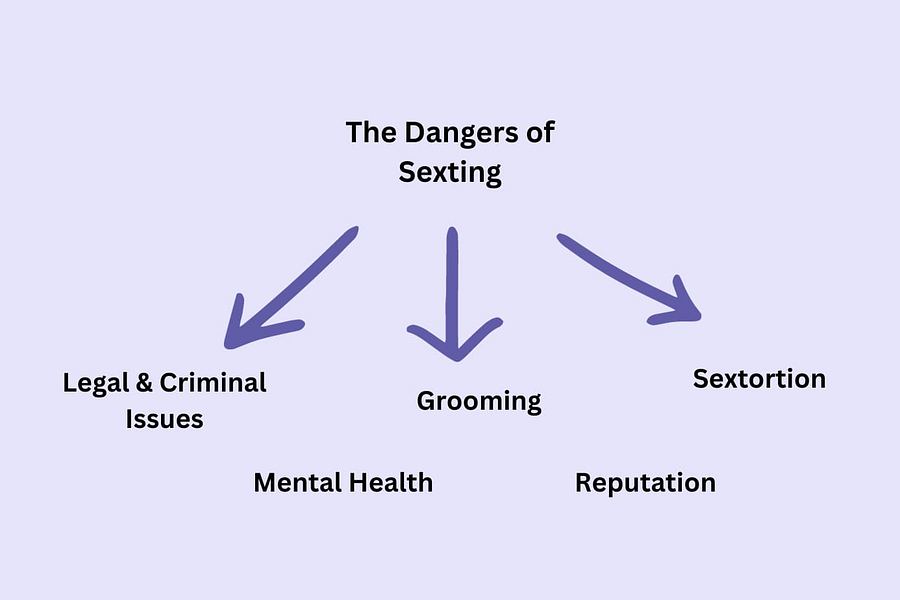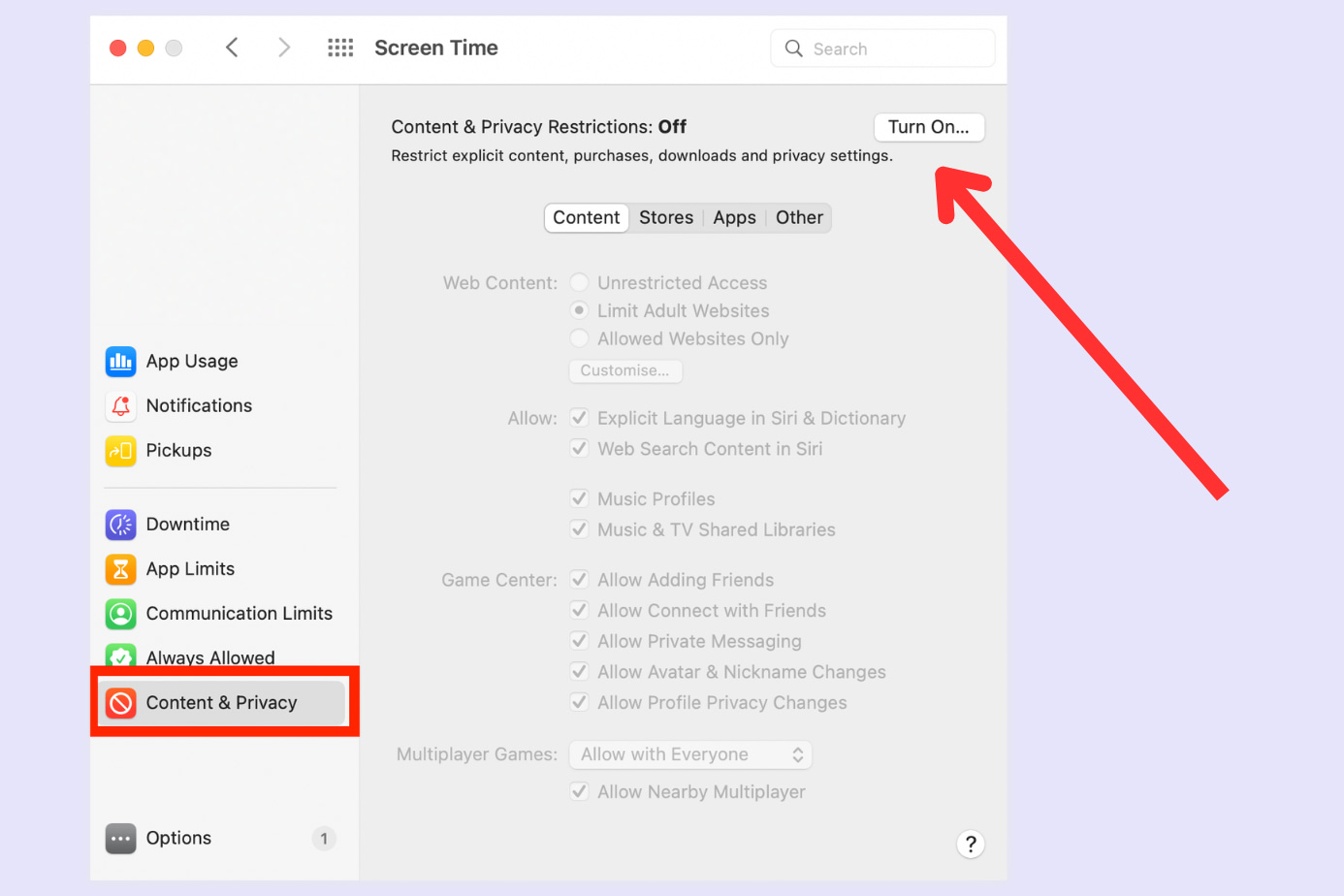The Consequences of Sending Inappropriate Pictures
Sexting only takes a moment but its consequences can last a lifetime.
Those consequences can include embarrassment, bullying, revenge porn, sextortion and even being placed on the sex offender registry.
Suffice it to say, sexting can have serious physical, emotional, and legal repercussions on your child whether they’ve sent or received explicit photos or video.
In this article, we’ll walk you through what your child might face if they’re caught up in a sexting scandal. That way you can prevent it from ever happening, or at the very least from ever happening again.
In this article:
- What problems can sexting cause?
- 5 big dangers of sexting
- FAQs: How to talk to your teen about the dangers of sexting
What Problems Can Sexting Cause?
Sexting can cause problems in the long run. But with the right guidance, parents can protect their children and prevent them from becoming victims. However, parents must also be careful not to overreact or scare their children into discussing their actions.
One of the most important ways to talk about sexting is to avoid being judgmental. The best way to do this is to be open and understanding and to listen to what your tween or teen has to say. Young people often have strong reasons not to do certain things, and it can be easy to feel guilty about doing something they didn’t want to do.
Taking sexually explicit photos and sharing them online can lead to criminal charges and may affect your academic or professional life. If you have children, don’t let sexting control their life as it can hurt their future. As a parent, you should make sure you protect your child from sexual abuse.
It is important to educate your child about the dangers of sexting to reduce impulsivity and empower them to stand up to peer pressure. You can also help them by explaining to them the consequences of sexting and the support services that are available to them.
Related read: 9 Sextortion Examples and Scams to Avoid
5 Dangers of Sexting – The emotional and legal implications of sexting
The dangers of sexting are very real. But odds are, your child isn’t considering them.
It’s up to you to educate them on—and protect them from—the emotional toll, physical harm, and legal ramifications that can result from sending even one inappropriate photo or text.
Here are 5 dangers of sexting that you and your child should be aware of:
1. Legally, sending or possessing underage nude photos is a crime punishable by law
Possession and distribution of child pornography is a serious offense. And rightly so. The only hiccup is that children and teens who send or possess nude photos of themselves or of their peers are technically in violation of the law too.
The American Academy of Pediatrics reports teen sexting can be prosecuted under state or federal law. While not every case is tried or convicted, it’s not worth the risk.
Criminal charges could have a lasting impact on your child’s future.
2. Your child could be sexting a sexual predator or groomer
Sexual predators and groomers often pretend to be someone else online. Your child may be communicating and sexting with someone they think is their age but who is actually an adult.
And that’s the last thing you want.
Sexting a sexual predator can escalate to meeting in person which would put your child in real physical danger.
3. Someone could blackmail your child (sextortion)
Another danger of sexting is the potential for blackmail and sextortion.
If another person comes into possession of your child’s nude photos, they could use them to coerce or blackmail them. This is emotionally damaging to your child but it could also lead to physical harm as well.
Imagine your child’s boyfriend or girlfriend threatens to expose the images or texts unless your child engages in real-life sexual activity. Or if a stranger threatens to expose them unless they send a large sum of cash.
Sextortion can spiral out of control with some teens even committing suicide after becoming victims of sextortion scams.
Key Read: How to Deal with Sextortion
4. Photos can end up on the internet and be sent around
Even if the nude photo was intended for one person, sexting can lead to revenge porn (which has increased by 40% in 2022 from 2021) and bullying.
It’s reported that more than 1 in 10 teens forward sexts on without consent. That means your child’s inappropriate photo could quickly spread among their peers and beyond. At that point, it’s hard to know or control who comes into possession of it or what they do with it.
Someone may post it online and once a photo has made its way to the internet, it’s difficult to remove which can have lasting implications on your child’s reputation and mental health. Which brings us to our next point.
5. Your child’s mental health could suffer from bullying and exclusion
When a nude photo is sent around, it often results in name-calling, judgment, and social exclusion. If it’s your child’s photo, they may struggle to cope.
This can lead to temporary or long-lasting mental health problems such as anxiety and depression.
Key Read: How to Prevent Cyberbullying
What are some consequences of sexting?
One of the biggest consequences of sexting is the destruction of a young person’s reputation, which can hinder future opportunities such as college admissions and employment. Once a photo is sent or uploaded online, copies can resurface and be found across the internet for years to come. One lapse in judgment can ruin a person’s life. If you’re a teenager who’s caught receiving sexts, don’t share the photos with anyone.
Not only can sexting lead to social embarrassment, it can also lead to bullying and cyberbullying. Worse yet, it can lead to “Sextortion” which is when someone convinces you to send them a naked picture and then threatens to share that picture with others unless you do as they ask. Beyond sextortion, nude photos from sexting can be used as a way of blackmailing.
Many teens feel uncomfortable about sending intimate images but are concerned about how they will be viewed by their peer groups.
The consequences of sexting and the impact the trend has are social-based consequences, being bullied or being left out of their peer group, as well as the legal concerns that come with issues such as revenge porn, teen sexting, and illegal images and photos.
How to protect children from sexting?
Canopy automatically scans and analyzes photos that are saved on your child’s device. It can sense sexually explicit photos and nude pictures on phones and devices. When sexual images are detected it can prevent your child from viewing the photo or image until it has been approved by an adult.
If you have serious concerns for any children involved in sexting you should contact the e-safety commissioner for your locality and try to help the potential victim by being open and communicating about the concerns.
Those looking for tools to help keep their family safe online should check out the Canopy Parental Control App. Canopy will filter and block inappropriate content across all devices, so you never have to worry about your kids seeing explicit imagery or video again.
Find out how the technology works here.
FAQS: Talking About the Dangers of Sexting With Your Kids
What is classified as inappropriate content?
Sexting is a form of inappropriate content and it’s something parents and Canopy want to prevent from taking place.
Canopy classifies inappropriate content as:
- Any explicit or suggestive photographs or videos sent, shared, or received on digital platforms.
- Graphic or vulgar written messages that describe sexual acts or intentions.
- Links or URLs directing to pornographic websites or explicit content.
- Conversations or chat logs that solicit sexual acts or share explicit personal experiences.
- Digital illustrations, drawings, or animations that depict nudity or sexual acts.
- Profiles or avatars that use explicit imagery or suggestive poses.
- Media files containing explicit audio recordings or sound effects.
- Any content that promotes harmful sexual behavior or exploits individuals.
- Unsolicited explicit content or messages sent with the intent to harass or intimidate.
- Digital gestures or emojis used in a sexually suggestive manner.
- Any form of media that advertises or sells explicit content.
- Content that normalizes or encourages non-consensual acts, including any form of sexual assault or harassment.
- Material that promotes sextortion or any form of blackmail using explicit content.
- Any content or discussions promoting or glorifying pedophilia, child exploitation, or any illegal sexual activities.
Our Parental Control App prevents children and teens from sending or receiving sexually explicit imagery. It also blocks adult content instantly.
What age should I talk to my teenager about sexting?
You can start the conversation around the onset of puberty, generally between the ages of 11 and 14. This is a critical period when children start to explore relationships and their sexuality, making it a prime time to instill safe and respectful habits.
How should I bring up sexting to my teenager?
Approach the topic calmly and non-judgmentally. You might start by asking open-ended questions about what they know or think about the topic, encouraging a two-way conversation. Make it a safe space where they can express their thoughts without fear of punishment.
For further tips check out our article about how to talk to your child about inappropriate photos.
What should I say to my teen after I find out they’re sexting?
First, stay calm and collected. Approach your teen with understanding and empathy, not with anger. Open a dialogue where you can discuss the potential consequences of sexting, emphasizing the importance of consent and the legal ramifications involved, guiding them towards making safer choices in the future.








